Recent Blog Posts
In Which Types of Cases Is a Mass Tort Action Appropriate?
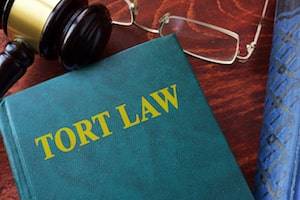 Mass tort actions are especially useful in certain types of cases, as they provide an efficient way for personal injury victims to receive the compensation they deserve. Pharmaceutical and medical device claims are often brought forward through a mass tort action. This is because these products, if defective, will likely injure a large number of people.
Mass tort actions are especially useful in certain types of cases, as they provide an efficient way for personal injury victims to receive the compensation they deserve. Pharmaceutical and medical device claims are often brought forward through a mass tort action. This is because these products, if defective, will likely injure a large number of people.
What Is a Mass Tort?
While the word “tort” is commonly used in the law, many people without a legal background do not know what it means. A tort is an injurious act that occurs due to the fault of another. Car accidents and slip and fall cases are common torts, as are damages made to land or property. Thus, a mass tort action involves an injurious act or product that affects a large group (or mass) of people.
Fraud, False Advertising, and Misrepresentation Claims in Home Sales: How the Spring Melt Can Lead to a Flood of Litigation for Wisconsin Home Sellers
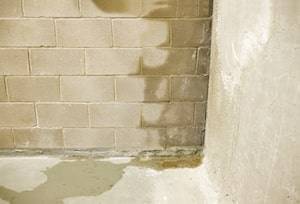 Most people are relieved and ready to move on to the next phase of their lives after going through the long and stressful process of selling a home. Buyers and sellers typically have had very little direct interaction with each other during the sale process, and most sellers assume that they will never hear from the buyers again.
Most people are relieved and ready to move on to the next phase of their lives after going through the long and stressful process of selling a home. Buyers and sellers typically have had very little direct interaction with each other during the sale process, and most sellers assume that they will never hear from the buyers again.
But as sure as the first warm sunny day will melt the winter snow, so too will Wisconsin’s real estate litigation start heating up this spring. Because with all that melting snow comes another sure sign of spring in Wisconsin: damp and leaky basements. In some cases, last season’s real estate buyers are surprised to find out that their new home’s basement is no longer dry. So some buyers decide to sue the sellers after realizing how much it’s going to cost to fix their leaky basements.
Is Your Injury Claim Suitable for a Mass Tort Action?
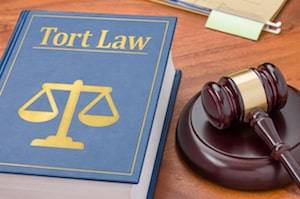 What is a mass tort? A mass tort is a type of action that can be brought when there is one instance of negligence that causes injury to a group of people. Mass tort actions can be brought against defendants in state or federal court. It is not uncommon for these cases to be consolidated into multidistrict litigation.
What is a mass tort? A mass tort is a type of action that can be brought when there is one instance of negligence that causes injury to a group of people. Mass tort actions can be brought against defendants in state or federal court. It is not uncommon for these cases to be consolidated into multidistrict litigation.
A judge will determine if a mass tort action can be brought in multidistrict litigation. He or she will look at how many victims are involved, if the victims live near each other, if the injuries complained of are similar, and whether there is a common cause of the injuries, such as a single accident or product.
Typical Types of Mass Tort Actions
Wisconsin law does not limit mass tort actions to certain types of injuries or certain industries to mass tort actions. That said, there are certain claims that often are successful in using a mass tort action:
Child Custody Issues that Must Be Addressed During Divorce
 There are numerous child custody concerns that need to be addressed as part of divorce proceedings. The resolution of these issues can have a huge influence on your children for years to come, so it is important to understand what a typical child custody proceeding entails.
There are numerous child custody concerns that need to be addressed as part of divorce proceedings. The resolution of these issues can have a huge influence on your children for years to come, so it is important to understand what a typical child custody proceeding entails.
Types of Custody
In Wisconsin, there are two types of custody, and both types must be negotiated or litigated during a divorce case. The first type is called legal custody, which refers to the right of a parent to decide major life decisions for their child. These determinations include where a child will go to school and attend church, as well as decisions about medical care issues. In many cases, a court will allow both parents to have a say in these decisions.
The second type of custody in Wisconsin is physical placement, which refers to where a child lives. This type of custody could be sole or joint. Even if one parent has sole custody, the other parent may have visitation rights as well as legal custody rights.
Legal Issues to Resolve When Relocating After Divorce
 If you are a divorced parent, moving will likely be more complicated than finding a new home and packing up a moving van. That is because there are certain laws that apply when a divorced parent wants to move with their children to a new location.
If you are a divorced parent, moving will likely be more complicated than finding a new home and packing up a moving van. That is because there are certain laws that apply when a divorced parent wants to move with their children to a new location.
In Wisconsin, the parental relocation laws were updated in April 2018. The new law provides that if both parents are granted any period of physical placement with a child, and one parent seeks to move with the child at least 100 miles away from the other parent, then the relocating parent must request permission for the move with the court.
The request to the court must include the following information:
- The date of the proposed move
- The city and state of the proposed new home
- The reason for the move
Issues to Address in a High Net Worth Divorce
 Property division is a component of any divorce, and in a high net worth divorce, this issue can be complex and hotly contested. Such divorces may require the assistance of forensic accountants to review voluminous financial documents and tax specialists to determine the tax costs and implications of dividing or transferring ownership of property.
Property division is a component of any divorce, and in a high net worth divorce, this issue can be complex and hotly contested. Such divorces may require the assistance of forensic accountants to review voluminous financial documents and tax specialists to determine the tax costs and implications of dividing or transferring ownership of property.
Dividing Large and Complex Assets
It is usually accepted that a high net worth divorce involves liquid assets totaling more than $1 million. Those who fit this description often have a variety of businesses and accounts that have been created in order to take advantage of tax laws as well as to diversify assets.
In all cases of asset division, an attorney will first seek to identify what property is part of the marital estate. In Wisconsin, any property acquired or income earned by either spouse during the marriage is considered community property.
Resolving Issues Involving Contested Estates in Probate Court
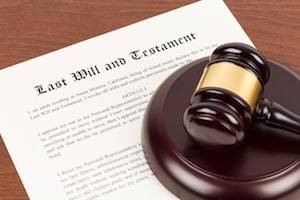 An estate may be contested when an interested party (such as one of the beneficiaries) objects to using the will to distribute an estate, in whole or in part. Such objections can lead to significant delays in distributing the property to heirs, so it is important that parties to such contests be represented by qualified legal counsel who can move the process along in a timely fashion.
An estate may be contested when an interested party (such as one of the beneficiaries) objects to using the will to distribute an estate, in whole or in part. Such objections can lead to significant delays in distributing the property to heirs, so it is important that parties to such contests be represented by qualified legal counsel who can move the process along in a timely fashion.
Because the testator (the person who made the will) is dead during the probate process, proving what he or she intended at the time the will was signed can be difficult, although not impossible.
Common Challenges Made in Probate Court
Estate administration is complex, because no two wills and no two estates are alike. There are, however, common issues that are raised in probate court related to contesting a will. These include:
Issues to Be Aware of When Drafting a Business Contract
 A business is only as strong as the contracts it enters. There are many ways that a business contract can be detrimental to a company: it can favor the other side, it can be unclear from a legal perspective, it can be vague, and it can leave out key terms. Many business owners fall victim to using a template contract found online that is not properly tailored to the parties and their unique situation.
A business is only as strong as the contracts it enters. There are many ways that a business contract can be detrimental to a company: it can favor the other side, it can be unclear from a legal perspective, it can be vague, and it can leave out key terms. Many business owners fall victim to using a template contract found online that is not properly tailored to the parties and their unique situation.
On the other hand, a well-crafted contract can be an important asset to a business, giving the business stability. It should be noted that there are many ways a business contract can be poorly constructed, and those business owners looking to enter into a contract should be aware of these areas. Contract issues that commonly affect business owners include:
- Too much legalese. If you do not understand the terms of the contract because legal jargon is used, this does not mean the contract is a good one. A good contract should be readable and understood by the parties. There may be a term or two that will need to be explained to you by a lawyer, but on the whole, a good contract should be understandable.
Calculating Child Support in a Wisconsin Divorce
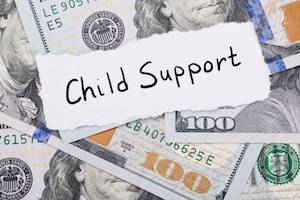 Determining child support is an important component of the divorce process for couples who have children. Child support is seen by the courts as a way to protect children from the economic instability that could come from divorce.
Determining child support is an important component of the divorce process for couples who have children. Child support is seen by the courts as a way to protect children from the economic instability that could come from divorce.
Child support should be used to meet all of the child’s needs, such as housing, food, transportation, and medical care. It should also be used for items that may not be necessities but are things that the child became accustomed to during the marriage, such as camps and extracurricular activities.
If you are in a situation in which one parent has the children less than 25 percent of the overnight stays each year, then that parent will be the paying parent, and his or her income will be used. Child support will be calculated based on the following percentages of the paying parent’s gross income:
Avoiding Car Accidents During the Winter
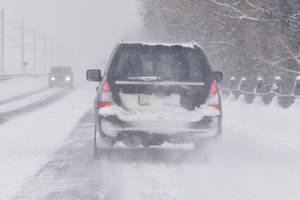 Learning to drive in Wisconsin’s winter weather is a skill unto itself. Snow, ice, and freezing temperatures all increase the difficulty level of driving and, unfortunately, they also increase the chances of a car accident.
Learning to drive in Wisconsin’s winter weather is a skill unto itself. Snow, ice, and freezing temperatures all increase the difficulty level of driving and, unfortunately, they also increase the chances of a car accident.
Anyone getting behind the wheel this winter should familiarize themselves with the following tips in order to keep the roadways safe for everyone:
1. Use the Right Equipment
Winter tires are recommended in temperatures less than 44 degrees. Many people operate under the false notion that all-season tires are able to adequately handle winter driving. However, the rubber compound in all-season tires begins to freeze when temperatures go below 44 degrees. This means that such tires will be less effective at gripping the road. If you do not have winter tires, proceed with caution and the understanding that your car may not be able to handle all winter road conditions.







